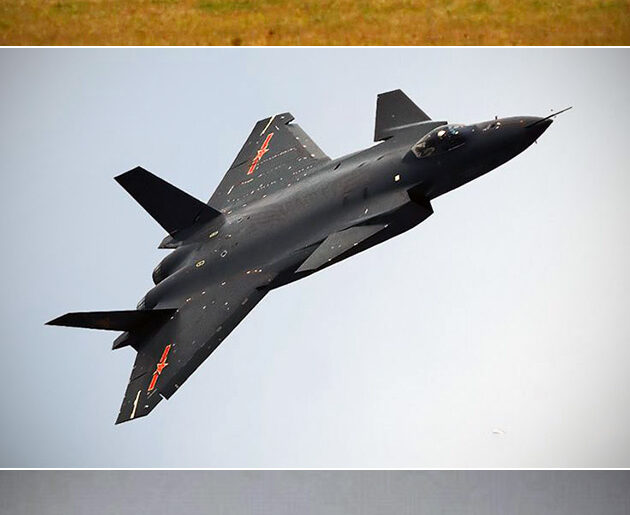
The Chengdu J-20 is a stealth, twin-engine fifth-generation fighter aircraft prototype being developed by Chengdu Aircraft Industry Group for the Chinese People’s Liberation Army Air Force (PLAAF). It completed its first flight on January 11, 2011, and is expected to be operational in 2018. However, sightings of this elusive aircraft remain far and wide. The platform has the potential to be a capable, long-range strike system in the Asia-Pacific region.
5. Aircraft Originated from J-XX Program in 90s

Origins of the J-20 came from the J-XX program which was started in the late 1990s. A proposal from Chengdu Aircraft Industry Group, designated “Project 718”, had won the PLAAF endorsement following a 2008 competition against a Shenyang proposal that was reportedly even larger than the J-20.
- 𝗟𝗶𝗴𝗵𝘁𝘄𝗲𝗶𝗴𝗵𝘁 𝗮𝗻𝗱 𝗣𝗼𝗿𝘁𝗮𝗯𝗹𝗲 - The drone is lightweight and compact, weighing...
- 𝗡𝗼 𝗥𝗲𝗴𝗶𝘀𝘁𝗿𝗮𝘁𝗶𝗼𝗻 𝗡𝗲𝗲𝗱𝗲𝗱 - Under 249 g, FAA Registration and Remote ID are not required if...
- 𝗘𝘅𝘁𝗲𝗻𝗱𝗲𝗱 𝗙𝗹𝗶𝗴𝗵𝘁 𝗧𝗶𝗺𝗲 - Enjoy longer flights with DJI Mini 2 SE, which offers a 31-min max flight...
4. Has F-22 Inspired Frameless Canopy

The J-20 has a long and wide fuselage, with the chiseled nose section and a frameless canopy resembling that of the F-22 Raptor. Immediately behind the cockpit are low observable intakes. All-moving canard surfaces with pronounced dihedral are placed behind the intake ramps, followed by leading edge extensions merging into delta wing with forward-swept trailing edges.
3. Powered by WS-15 Engines

The production version of the J-20’s is powered by the WS-15, a turbofan engine currently under development. According to Global Security, the engine core, composed of high pressure compressors, the combustion chamber, and high pressure turbines were successfully tested in 2005
2. DSI Reduces Need for Radar-Absorbent Materials

The diverterless supersonic inlet (DSI) enables an aircraft to reach Mach 2.0 with a simpler intake than traditionally required, and improves stealth performance by eliminating radar reflections between the diverter and the aircraft’s skin. Analysts have noted that the J-20 DSI reduces the need for application of radar absorbent materials.
1. Cockpit Has Holographic Heads-Up Display

The aircraft features a glass cockpit, with two main large color liquid crystal displays (LCD) situated side-by-side, three smaller auxiliary displays, and a wide-angle holographic head-up display (HUD).


